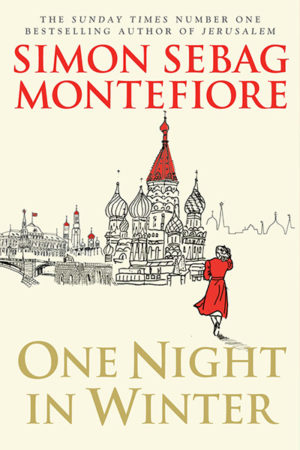The historian Simon Sebag Montefiore is well known and highly respected for his award-winning non-fiction bestsellers such as Jerusalem, The Romanovs and Stalin. However, this gripping historical novel also proves his expertise as a writer of fiction. A quicker, slimmer read than many of his other works, it is just as involving and darkly exciting.
The novel is set in Moscow in 1945. As Stalin and his court celebrate victory over Hitler, shots ring out. On a nearby bridge a duel is being re-enacted. Suddenly a teenage boy and girl lie dead. But this is no ordinary tragedy and these are no ordinary teenagers. They are the elite children of Russia’s most important leaders who attend the most exclusive school in Moscow.
The novel twists and turns as Montefiore challenges the reader to establish whether this is a murder, a suicide pact or a conspiracy against the brutal state. Stalin himself oversees an unforgiving investigation that sees children arrested and forced to testify against their friends – and their parents. This brutal witch-hunt quickly unveils illicit love affairs and family secrets in a precarious world where even the tiniest mistakes are punished by death. Montefiore writes ‘Stalin believed that killing was the quickest, most efficient way to accelerate the progress of history.’ The characters’ fears and anxieties together with their love and longing for freedom are thoughtfully portrayed against the backdrop of the paranoid and corrupt Bolshevik regime and its unbending rules.
Montefiore’s in-depth knowledge of Russian history coupled with his imaginative prose results in a fantastic read. His familiarity with Stalin and his evil regime brings everything he describes to life. From the Communist School 801 to the bleak interrogation rooms of the Lubyanka prison, from the Bolshevik leaders grand, opulent homes to the depressing squalor of Andrei Kurbsky’s shabby flat, you can almost taste and smell 1940s Moscow.
The novel is based on the true story of two children of elite Soviet figures who ended up shooting each other in what became known as ‘the Children’s Case’. Through this terrible, desperate event Montefiore explores the Bolshevik credo and what it meant for youth, friendship, family life and, most importantly, love during this extraordinary period in history. In a historical note at the end of the novel, he explains that ‘One Night in Winter is ‘not a novel about power, but about private life – above all, love.’ In Stalin’s Soviet Union, power corrupts and shatters all bonds of love, even familial ones. No one was allowed to feel safe. No one was free to love openly as the monstrous Stalin’s insecurities filled his reign with horrific, unnecessary deaths.
For me, the most successful and moving character in the novel is Benya Golden, the charismatic Pushkin-loving teacher, who sacrifices his own life due to his unswerving love for his students. He is Montefiore’s proof that no amount of terror or horror will ever succeed in destroying bravery or love.
One Night in Winter is published by Arrow, 496 pages





